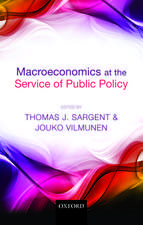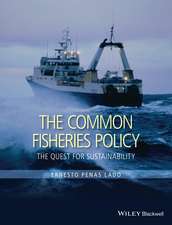Rethinking Risk and the Precautionary Principle
Editat de Julian Morrisen Limba Engleză Paperback – 18 sep 2000
The precautionary principle is frequently invoked as a justification for regulating human activities. From bans on the use of growth hormones in cattle to restrictions on children's playground activities, precautionary thinking seems to be taking over our lives. As the contributors to this book show, such an approach is of dubious utility and may even be counterproductive.
This is a timely and important contribution to the debate on how to manage risk in the modern world. The editor, Julian Morris, is Director of the Environment and Technology Programme at the Institute of Economic Affairs in London. He has written widely on issues relating to environmental protection and technological development.
- Up to date discussion of current issues and scientific controversies
- Challenges the claim that the 'precautionary principle' is an appropriate guide to public policy decisions
Preț: 290.75 lei
Nou
Puncte Express: 436
Preț estimativ în valută:
55.63€ • 58.09$ • 45.94£
55.63€ • 58.09$ • 45.94£
Carte tipărită la comandă
Livrare economică 08-22 aprilie
Preluare comenzi: 021 569.72.76
Specificații
ISBN-13: 9780750646833
ISBN-10: 0750646837
Pagini: 294
Ilustrații: 1
Dimensiuni: 156 x 234 x 17 mm
Greutate: 0.45 kg
Editura: ELSEVIER SCIENCE
ISBN-10: 0750646837
Pagini: 294
Ilustrații: 1
Dimensiuni: 156 x 234 x 17 mm
Greutate: 0.45 kg
Editura: ELSEVIER SCIENCE
Public țintă
Scientists and policy-makers, health and safety professionals and students.Professionals and academics in public administration and politics.
Government and regulatory authorities.
Cuprins
1. Defining the Precautionary Principle, Julian Morris2. Trial and Error vs Trial Without Error, Aaron Wildavsky3. The Precautionary Principle and Our Obligations to Future Generations, Wilfred Beckerman4. Precaution, GM Crops and Farmland Birds, Tony Gilland5. Genetically Modified Fear and Interntational Regulation of Biotechnology, Henry Miller and Gregory Conko 6. Asteroid Collisions and Precautionary Thinking, Charles Rubin7. Child Protection and the Precautionary Principle, Helene Guldberg8. Plastic Panics: European Risk Regulation in the Aftermath of BSE, Bill Durodie9. The Precautionary Principle as a Force for Global Political Centralization -- a case-study of the Kyoto Protocol, Bruce Yandle10. Applying the Precautionary Principle in a Broader Context, Indur Goklany11. A Richter Scale for Risk? John Adams12. Facts vs Factions - the use and abuse of subjectivity in scientific research, Robert Matthews
Recenzii
"this book will be of interest to OHS and environmental managers, practitioners and those studying at diploma or degree level for professional qualifications in these fields. If you have never encountered risk other than in the context of the Management of Health and Safety at Work Regulations, then this will provide some thought-provoking perspectives." Safety and Health Practitioner, Feb. 2002
"This is an illuminating expolration of a wide variety of real and imagined risks, and some of the more absurd responses of modern societies to them" --Trans IChemE, Vol. 79, July 2001
"The book is strongly recommended to the many undergraduate students of different disciplines whom are now introduced to health and safety, and to the many professionals now faced with such issues. It will help develop a healthy scepticism so necessary for the professional faced with ever increasing political interference, bureaucracy and regulation." --Professor Sir Bernard Crossland, CBE, FRS, FREng, in The Hazards Forum Newsletter, Spring 2001
"'For a view of risk at the level of society at large, and for a wider perspective on risk in general, it is an interesting read." --Health and Safety at Work, April 2001
"Morris is an intelligent and thought-provoking editor, who has gathered within the covers of a single book some of the best and brightest brains in the field of risk assessment and management. The chapter on global warming and Kyoto, by Bruce Yandle, should be made compulsory reading for every green fanatic." --Yorkshire Post - 5th April 2001
"This is an illuminating expolration of a wide variety of real and imagined risks, and some of the more absurd responses of modern societies to them" --Trans IChemE, Vol. 79, July 2001
"The book is strongly recommended to the many undergraduate students of different disciplines whom are now introduced to health and safety, and to the many professionals now faced with such issues. It will help develop a healthy scepticism so necessary for the professional faced with ever increasing political interference, bureaucracy and regulation." --Professor Sir Bernard Crossland, CBE, FRS, FREng, in The Hazards Forum Newsletter, Spring 2001
"'For a view of risk at the level of society at large, and for a wider perspective on risk in general, it is an interesting read." --Health and Safety at Work, April 2001
"Morris is an intelligent and thought-provoking editor, who has gathered within the covers of a single book some of the best and brightest brains in the field of risk assessment and management. The chapter on global warming and Kyoto, by Bruce Yandle, should be made compulsory reading for every green fanatic." --Yorkshire Post - 5th April 2001













